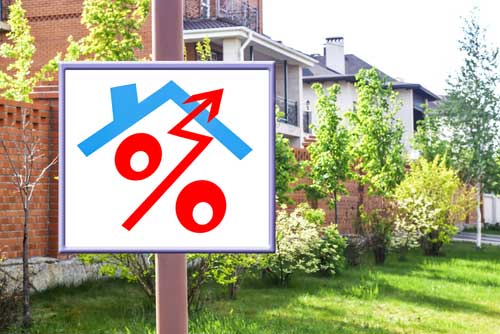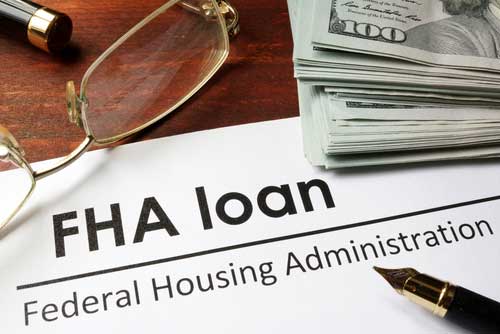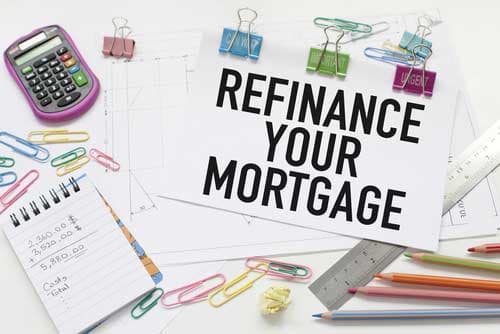Compare The Best Mortgage Rates in Lancaster, SC

Compare Lancaster, SC Home Loan Mortgage Rates
Whether a prospective borrower is checking out mortgages in Lancaster, SC because they want to purchase their first home or refinance the mortgage on their current home, it's vital that they get the best mortgage rate possible. That's made much easier by MyRatePlan, which has all the data and tools borrowers need to check out mortgage rates and compare what's available from different lenders. By looking at all their options first, the borrower can make sure that they pay as little interest as possible on their home loan.

How a Borrower Can Secure the Best Mortgage Rate in Lancaster, SC
If someone is interested in buying a home in Lancaster, SC, they are more than likely going to need a mortgage to do it. Even the homes with the lowest prices are still typically at least $50,000, and since that's more than the majority of people have sitting in their bank accounts, it's just about impossible to get a home by paying cash. That means the homebuyer is going to need a home loan for financing, and they'll want the absolute lowest possible interest rate to keep costs down. The first step, after the prospective borrower locates the home of their dreams, is to do their own research on mortgage lenders. It's common for real estate agents to give their own advice here, and they often recommend mortgage lenders they've done work with in the past. The problem is that the real estate agent primarily cares about closing the home purchase, and the buyer's interest rate is secondary. But getting a mortgage approved quickly isn't always best, as it can take time to find the top deals. The borrower should look around and use the internet to get the info they need to make an informed decision. With the MyRatePlan mortgage rate tool, any borrower is able to pull up the lowest mortgage rates across Lancaster, SC. Now, to receive approval on a loan at a low rate, the borrower will need to have a good credit score, and the higher, the better.

Are There Different Types of Home Loans in Lancaster, SC
There are a variety of mortgage types that cater to a range of buyers and incomes. Some of these are fixed-rate or variable rate mortgages, just to name two broader categories. We'll take you through the most common loan types you're likely to encounter when shopping for a place in Lancaster, SC.
Fixed-rate home loans for the Lancaster, SC area are those that require you to pay the same amount of interest throughout the life of the loan. That means that the amount you pay on a monthly basis does not change, regardless of month, year, or circumstances. This is also true even if you choose a long-term financing plan like a fixed-rate loan over a period of decades.
Adjustable-rate mortgages, as the name implies, have interest rates that will fluctuate slightly over time. Generally, an adjustable-rate mortgage starts out as a fixed-rate mortgage for a predetermined length of time that begins at the start of the loan period. After this time, the rate will change slightly, usually once per year. This combination of home loan types is why adjustable rates are also referred to as a hybrid mortgage. For example, if you have an adjustable-rate mortgage that lists 5/1 on the form, that means the loan has a fixed rate of interest for the first five years of its life. After these five years, the home loan adjusts once each year, signified by the one after the five.

Lancaster, SC FHA Home Loans
There's more to the buyer's choice than a fixed-rate mortgage or an ARM. The buyer also needs to figure out if they want to go with a mortgage that's insured by the government, including a FHA or a VA, or stick with the more conventional type of loan, which doesn't have any insurance or guarantee from the federal government. When it comes to government-backed mortgages in Lancaster, SC, there are three options, which are FHA Loans, USDA Loans and VA Loans.
FHA loans are a popular option, and they're available through the Federal Housing Administration's mortgage insurance program. The federal government's Department of Housing and Urban Development (HUD) handles this program. One major benefit of FHA loans is that just about any type of borrower can be eligible, as they're not only available to people who are purchasing a home for the first time. The way the loan works is that the government is providing insurance for the lender against any losses that could occur if the buyer defaults on their mortgage. For the buyer, one perk of an FHA loan is that they don't need to have as much of a down payment saved, because the down payment could be as little as 3.5 percent of the home's price. Typical down payments are between 10 and 20 percent. The drawback with FHA loans for the borrower is that they're also responsible for paying for mortgage insurance, and this means larger monthly payments.

Refinancing Mortgages in Lancaster, SC
In Lancaster, SC, refinancing a mortgage loan is like applying for a new one. The end result of this is that one may have to pay closing costs or any other fees required. This is, however, done when the loan is approved. If one seeks to refinance for the sake of enjoying lower rates, they should carefully consider the consequences of refinancing. The extra costs may offset some savings that one sees from refinancing. The exception to this rule is when one is refinancing from an adjustable rate loan to a fixed-rate loan. The reasoning is that the rates are more likely to go up in the future rather than going down.
Appearing as low-risk is the best strategy for those looking to refinance their mortgage. This can be achieved by keeping one's credit score above 700, keeping one's debt-to-income ratio low, and applying for a fixed-rate loan facility.
Compare The Best Mortgage Rates in
- Indian Trail, NC
- Marshville, NC
- Monroe, NC
- Pineville, NC
- Wingate, NC
- Mineral Springs, NC
- Waxhaw, NC
- Matthews, NC
- Peachland, NC
- Blackstock, SC
- Ridgeway, SC
- Great Falls, SC
- Rock Hill, SC
- Bethune, SC
- Catawba, SC
- Heath Springs, SC
- Liberty Hill, SC
- Chester, SC
- Van Wyck, SC
- Pageland, SC
- Mount Croghan, SC
- Kershaw, SC
- Mc Connells, SC
- Jefferson, SC
- Lando, SC
- Westville, SC
- Fort Lawn, SC
- Richburg, SC
- Edgemoor, SC
- Fort Mill, SC
Find Other Services in Lancaster, SC
ZIP Codes in Lancaster, SC
- 29720
- 29721
- 29722


 Menu
Menu